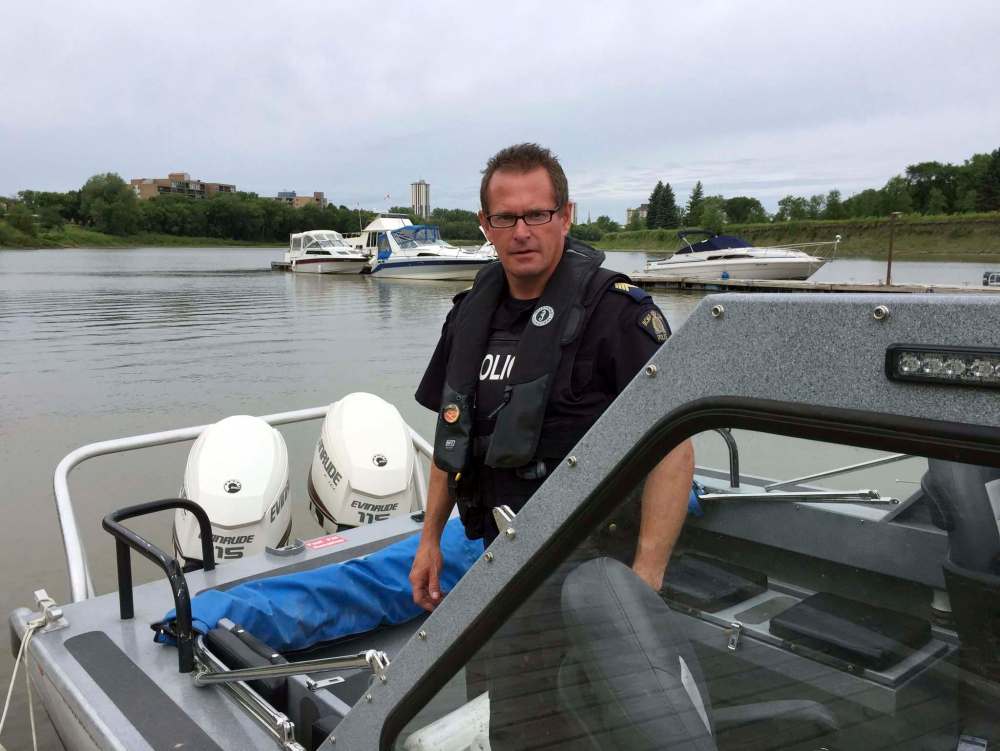Manitoba boaters urged to leave booze on shore
Advertisement
Read this article for free:
or
Already have an account? Log in here »
To continue reading, please subscribe:
Monthly Digital Subscription
$0 for the first 4 weeks*
- Enjoy unlimited reading on winnipegfreepress.com
- Read the E-Edition, our digital replica newspaper
- Access News Break, our award-winning app
- Play interactive puzzles
*No charge for 4 weeks then price increases to the regular rate of $19.00 plus GST every four weeks. Offer available to new and qualified returning subscribers only. Cancel any time.
Monthly Digital Subscription
$4.75/week*
- Enjoy unlimited reading on winnipegfreepress.com
- Read the E-Edition, our digital replica newspaper
- Access News Break, our award-winning app
- Play interactive puzzles
*Billed as $19 plus GST every four weeks. Cancel any time.
To continue reading, please subscribe:
Add Free Press access to your Brandon Sun subscription for only an additional
$1 for the first 4 weeks*
*Your next subscription payment will increase by $1.00 and you will be charged $16.99 plus GST for four weeks. After four weeks, your payment will increase to $23.99 plus GST every four weeks.
Read unlimited articles for free today:
or
Already have an account? Log in here »
Hey there, time traveller!
This article was published 03/08/2017 (3044 days ago), so information in it may no longer be current.
If you’re planning on going out on a boat on Manitoba waters, bring a life-jacket and leave alcohol out of the equation.
That’s the message behind Operation Dry Water, an annual initiative organized by the Canadian Safe Boating Council, the Lifesaving Society and Manitoba law enforcement agencies.
“(Manitoba) has the national high for fatalities related to alcohol and boating,” said Kevin Tordiffe, the operations manager for the Manitoba branch of the Lifesaving Society.

Nationally, 40 per cent of boating fatalities are alcohol-related, whereas in Manitoba, that figure is 70 per cent, while about one-fifth of highway traffic fatalities in Manitoba are caused by impaired driving.
“More people are drowning every year in Manitoba than are dying from impaired driving on highways,” Tordiffe said Wednesday ahead of the initiative’s launch during the upcoming August long weekend.
“That’s a scary number.”
Tordiffe said many boaters don’t understand or just forget how many safety risks exist out on the open water, even for experienced boaters who aren’t under the influence of drugs or alcohol. To add those substances to a trip out on the lake could — and often does — prove fatal.
“I think Manitoba has developed a culture where people don’t believe the same risks are present for boating and impaired operation of a vehicle, and that’s certainly not the case,” he said out on the docks behind Churchill High School.
According to the Criminal Code of Canada, operating any boat — motorized or not — with a blood-alcohol content above the .08 threshold could lead to charges of impaired operation. So even if a person was drunk while paddling a canoe, charges could be laid and all boating privileges suspended.
RCMP Staff Sgt. Bob Chabot, who serves as the inland water transport co-ordinator for the organization’s river patrol, said that in addition to some boaters’ troubling use of alcohol, most vessels in use in the province don’t entirely comply with safe boating requirements.
In Chabot’s personal experience this year so far, 95 per cent of the boaters he’s done spot checks on did not have the proper required safety equipment, ranging from the absence of proper life-jackets to missing bailing equipment.
Chabot said the trend is especially prevalent in rural lake areas. “It’s fairly concerning,” he added.
Simply having proper equipment on a vessel goes a long way to having a safe, enjoyable boating experience, Chabot said. But just having the equipment on board isn’t enough.
“If you fall in the water, it’s really too late to try to get your life-jacket by then,” he said.
Const. Rob Carver of the Winnipeg police called the province’s drowning and alcohol-related boating fatality statistics “disturbing,” and he hopes the initiative leads to a safer summer.
“We hope this message gets out and we encourage everybody to be safe, wear their life-jackets, and leave the alcohol on shore,” Tordiffe said.
ben.waldman@freepress.mb.ca

Ben Waldman is a National Newspaper Award-nominated reporter on the Arts & Life desk at the Free Press. Born and raised in Winnipeg, Ben completed three internships with the Free Press while earning his degree at Ryerson University’s (now Toronto Metropolitan University’s) School of Journalism before joining the newsroom full-time in 2019. Read more about Ben.
Every piece of reporting Ben produces is reviewed by an editing team before it is posted online or published in print — part of the Free Press‘s tradition, since 1872, of producing reliable independent journalism. Read more about Free Press’s history and mandate, and learn how our newsroom operates.
Our newsroom depends on a growing audience of readers to power our journalism. If you are not a paid reader, please consider becoming a subscriber.
Our newsroom depends on its audience of readers to power our journalism. Thank you for your support.

